
The life of a studio famed for big, difficult decisions began with a no-brainer. When John Romero approached Warren Spector with a blank cheque to make his dream game, Spector’s team was unemployed—showing up to the defunct Looking Glass Austin office to pitch ideas unpaid. In their sketches and documents was a concept for a spy game called Shooter, in which an agent could hack devices and control nanotechnology. The year was 1997, and the air was thick with Hollywood actors in mirrored sunglasses tapping away at chunky keyboards.
Suddenly, with Romero’s backing, anything Spector and his studio could imagine was fair game. The fundamentals were clear for a team that had coalesced around Thief: The Dark Project—a first-person world in which objects behaved as expected when subjected to gravity and the elements, and NPCs reacted with a nuance that enabled players to manipulate them.
Yet it wouldn’t be true to say that Deus Ex was born from a unified creative vision. In fact, Spector encouraged discord by creating two design teams, each with a separate idea of what the game should be. One, headed up by future Arkane boss Harvey Smith, was determined to ground the adventure in a fashion that emphasized the ‘near-’ of near-future; the other had inherited the Ultima RPG sensibilities of Spector’s alma mater, Origin Systems.
SOCIALIST SKILLS
This story is from the {{IssueName}} edition of {{MagazineName}}.
Start your 7-day Magzter GOLD free trial to access thousands of curated premium stories, and 9,000+ magazines and newspapers.
Already a subscriber ? Sign In
This story is from the {{IssueName}} edition of {{MagazineName}}.
Start your 7-day Magzter GOLD free trial to access thousands of curated premium stories, and 9,000+ magazines and newspapers.
Already a subscriber? Sign In

"The War Within itself has kept me coming back most evenings too"
WORLD OF WARCRAFT remains my jailer, and I couldn't be more pleased about it
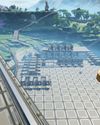
OK BUILDER
SATISFACTORY is the new titan in building and crafting games

HELL YES
DIABLO IV: VESSEL OF HATRED is a transformative expansion
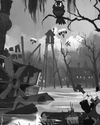
MOUSE: PI FOR HIRE
This mouse wants to be more than just a gimmick

WINDBLOWN
Dead Cells dev's new roguelike has me afraid for my free time
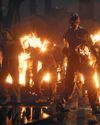
NO MORE ROOM IN HELL 2
As the zombie horde surrounded me just moments after taking down my two remaining teammates, the writing was really on the wall. Armed with just a chef's knife, it was clear I stood no chance, but I was going down swinging, hoping for a miracle... it didn't come.

OWNED BY STEAM
VALVE cordially reminds you that your games aren't yours

CURSE OF THE AZURE BONDS
These classic games haven't aged badly, but I sure have.
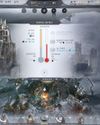
DEEP FREEZE
Endure a blizzard of tough choices and rough consequences in FROSTPUNK 2
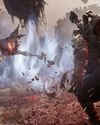
NEW HORIZONS
Building up REMNANT 2 outside the live service game grinder